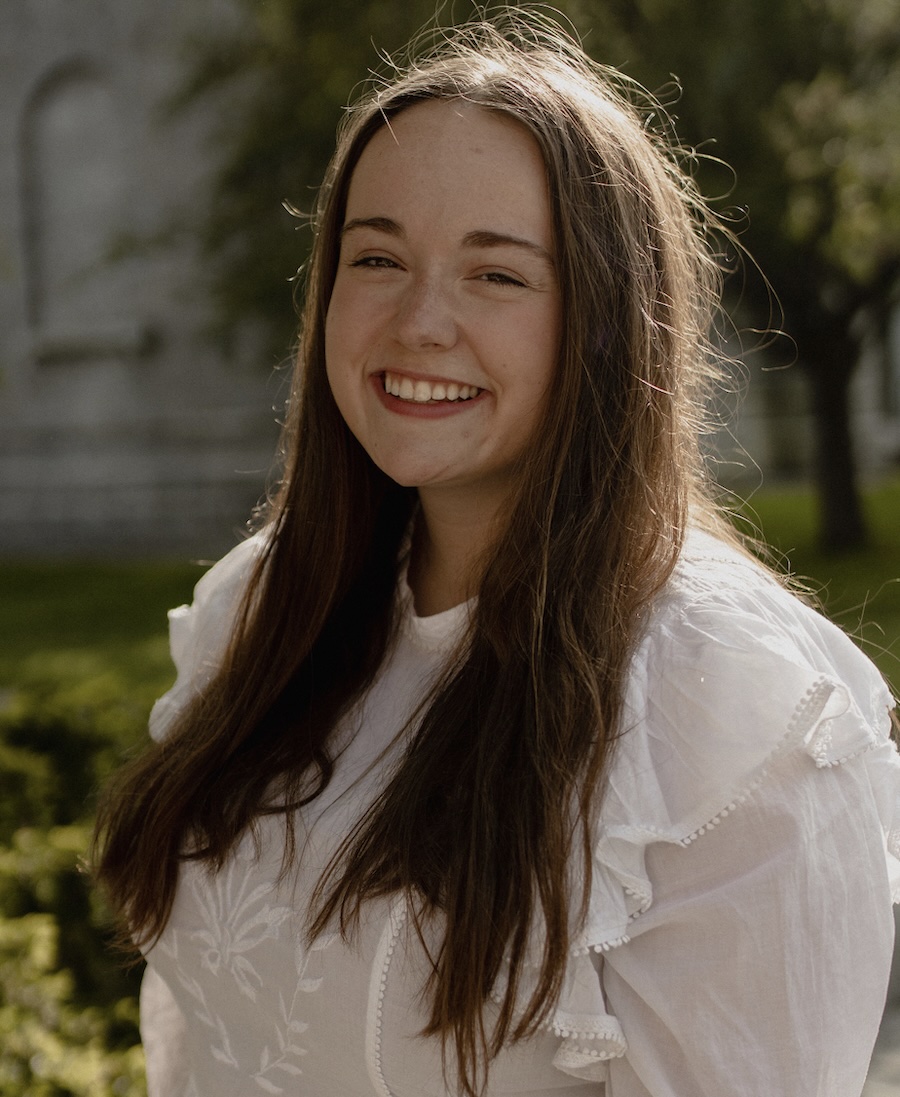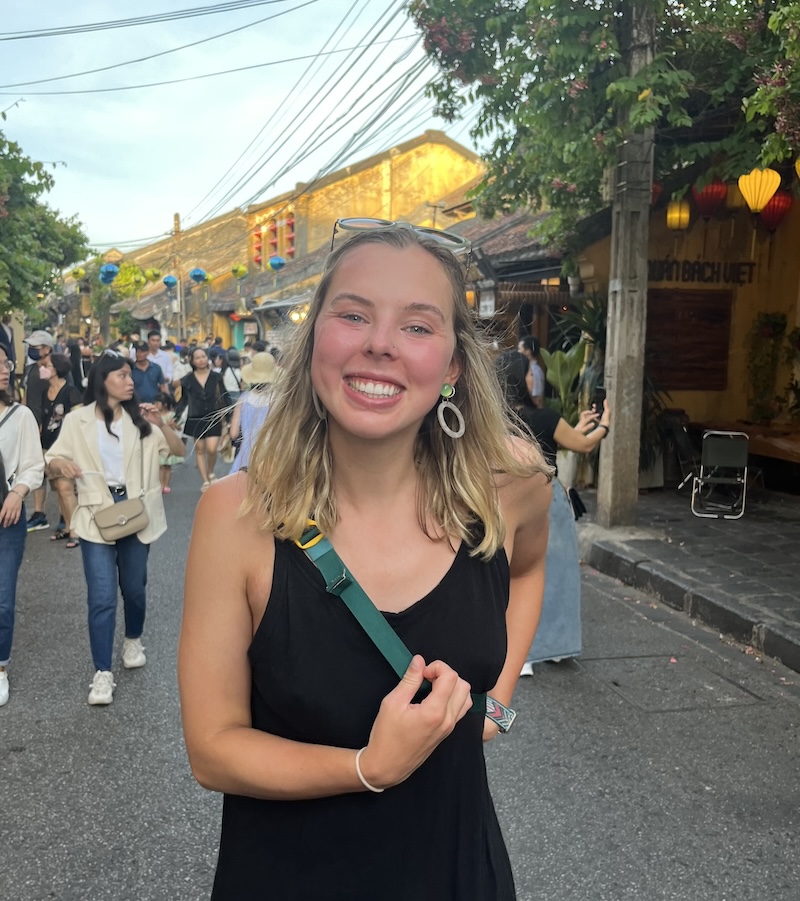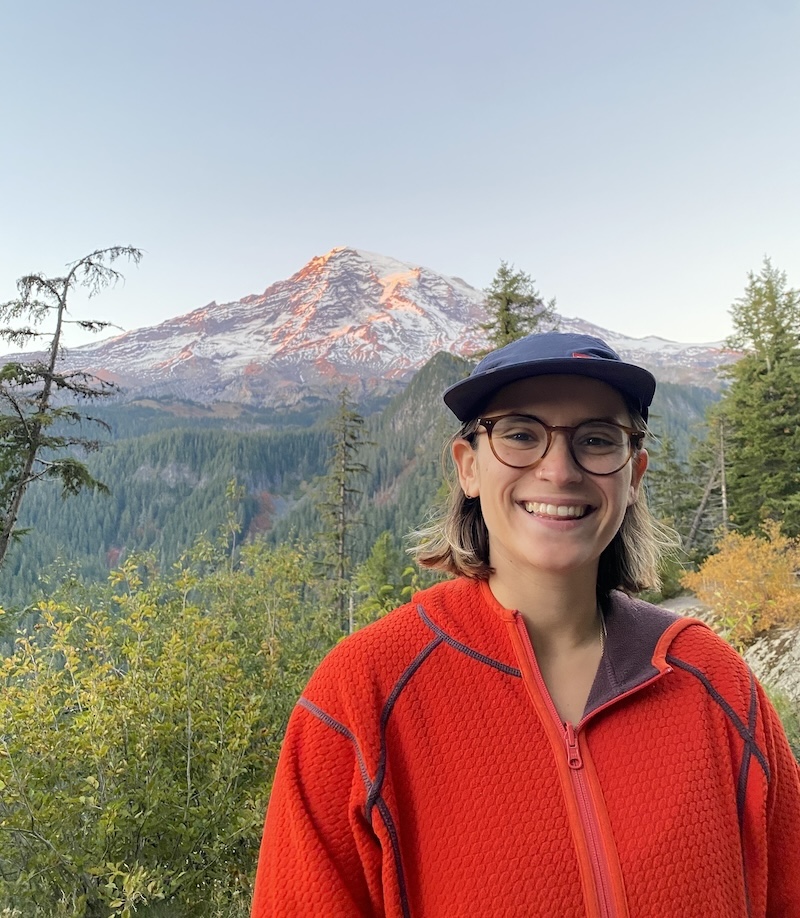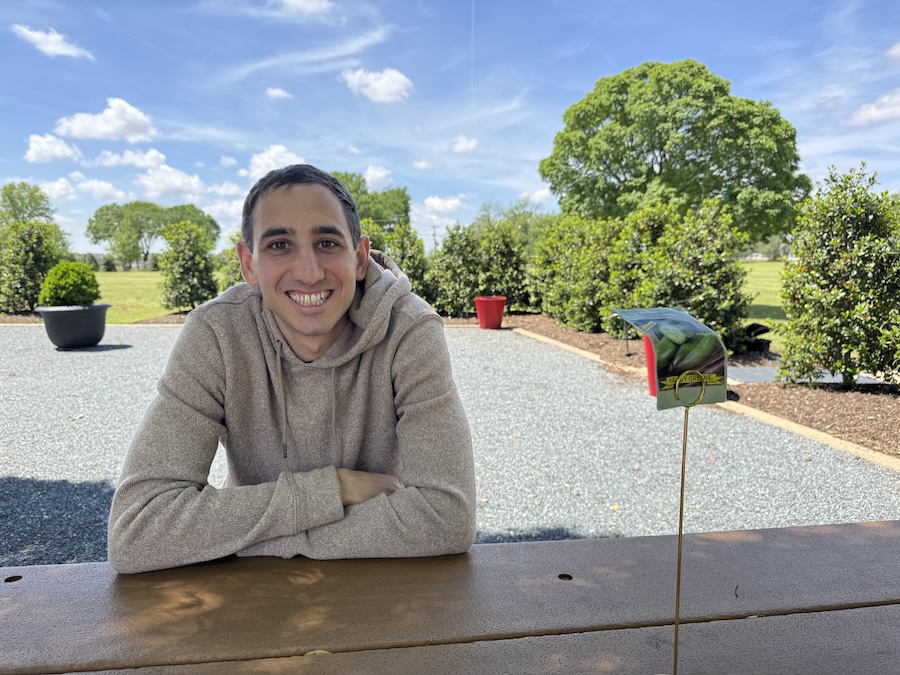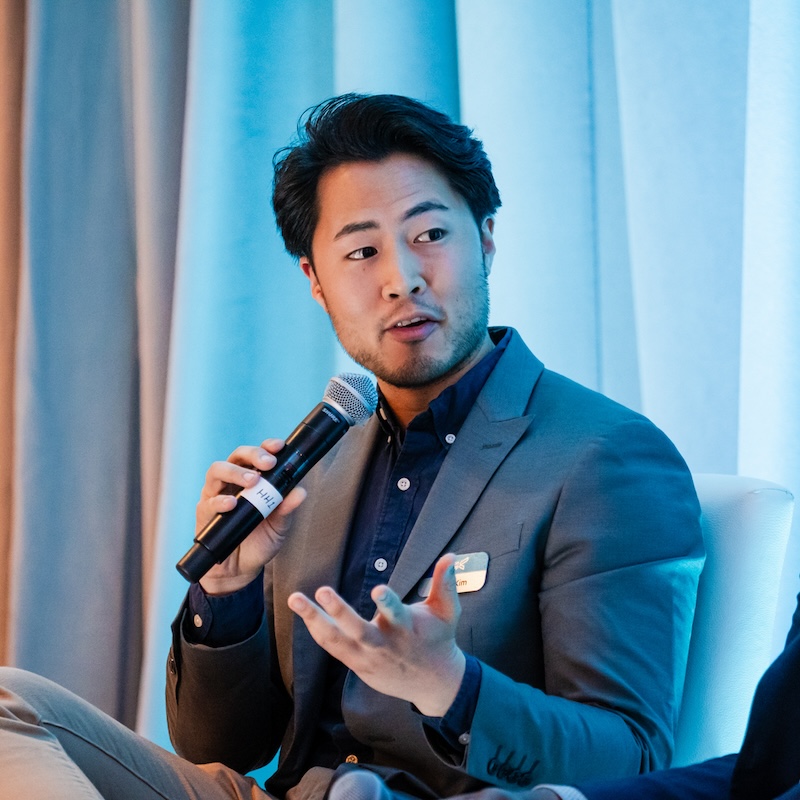What have you been up to since graduating from Bowdoin?
After graduating in the spring of 2023, I spent the fall working as a teaching fellow at Waynflete in Portland, Maine, co-teaching linear algebra and precalculus. I also helped run the school’s Math Lab and supported students with their math work. In the spring of 2024, I completed Bowdoin Teacher Scholars at Deering High School. Most recently, I began my master of education through the Independent School Teaching Residency program. I’m currently teaching 7th and 12th grade math at John Burroughs School in St. Louis, Missouri, while simultaneously earning my degree through the University of Pennsylvania. I will complete the program and receive my graduate degree at the end of my second year.
Why education?
I entered college completely unsure of what I wanted to do with my future. After taking a few introductory classes in the education department, I realized what a special field it is, and that I couldn’t imagine myself doing anything else. Thanks to my amazing math teachers in both high school and college, I knew I wanted to help students enjoy math and move past the anxiety that many often feel.
Are there any classes, professors, or experiences at Bowdoin that had a lasting impact on your interest in education?
I took Contemporary American Education with former Professor of Education Doris Santoro my first semester of college, and I was hooked on taking more education classes! I genuinely enjoyed all of my classes and professors in the education department and learned something new from each course I took. Two classes that have been particularly impactful on my practice were Teaching and Learning and Curriculum Development with Associate Professor of Education Alison Riley Miller and Barry N. Wish Professor of Social Studies Charles Dorn.
What advice would you give to current students or recent graduates interested in working in education or education-adjacent fields?
Take the risk! Every day brings new challenges, but that’s what makes the field so rewarding. I learn something new each day, and I’m excited to see what the future holds as I continue learning from both my colleagues and my students. There are so many people in this field who are committed to helping you become the best teacher you can be.
